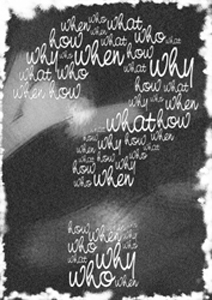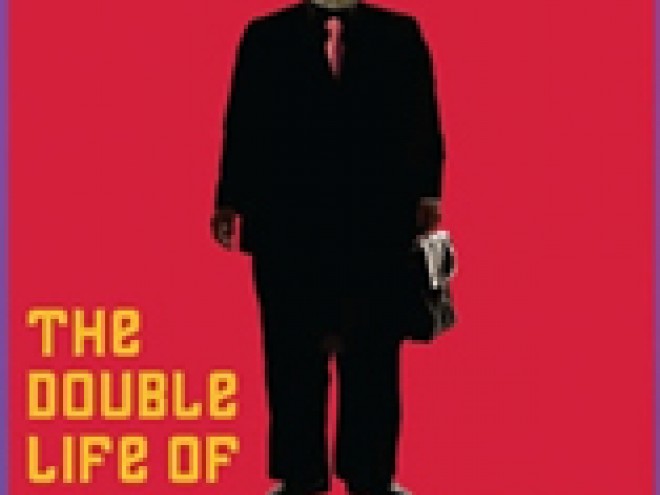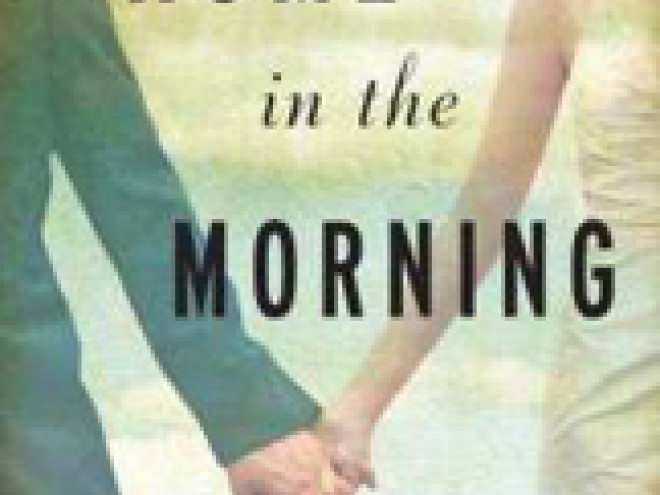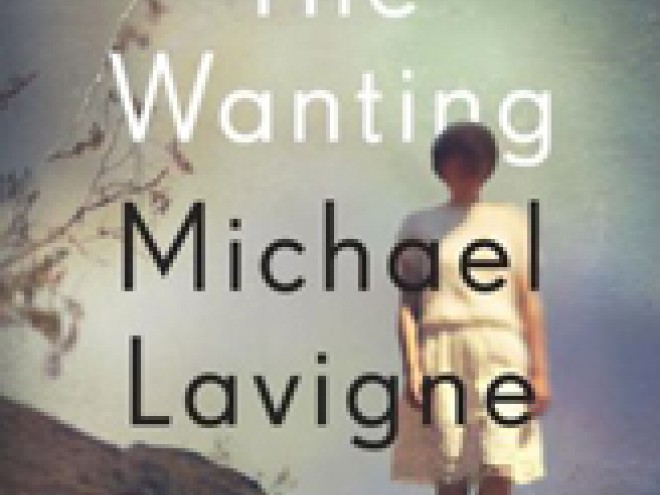Anyone who has been appointed the leader of their book club  knows that it can be a challenging job.And anyone who has sat through a book club discussion that falls into awkward silences, uncomfortable interactions, or boring exchanges knows just how key a good leader really is to lively and engaging conversations. Whether your group leader is a member of the book club or a professional facilitator, the same person each meeting or a rotating position, it takes skill and preparation to successfully guide a group of readers through the twists and turns of a good book discussion. How a leader prepares for a meeting, comes up with questions, includes supplemental sources, runs the actual meeting itself, and intercedes when a topic is falling flat can make or break the conversation.
knows that it can be a challenging job.And anyone who has sat through a book club discussion that falls into awkward silences, uncomfortable interactions, or boring exchanges knows just how key a good leader really is to lively and engaging conversations. Whether your group leader is a member of the book club or a professional facilitator, the same person each meeting or a rotating position, it takes skill and preparation to successfully guide a group of readers through the twists and turns of a good book discussion. How a leader prepares for a meeting, comes up with questions, includes supplemental sources, runs the actual meeting itself, and intercedes when a topic is falling flat can make or break the conversation.
So JBC Book Clubs is asking: what does it take to lead a book club?**
To start off this series of tips for facilitators from facilitators, we asked Sarah Rindner, a professor of English Literature and professional book club facilitator for her thoughts and suggestions.
Our book club is comprised of about 18 Jewish women, mostly of the baby-boomer generation, who have been meeting once a month for approximately 11 years. All the participants live in the same community in New Jersey and many have known each other for decades. The participants take care of the club’s logistics such as paying the moderator and bringing refreshments and leave it to the moderator (me) to run the discussions.
I occasionally offer suggestions for potential book selections, but for the most part the women choose the novels the club will read based on word of mouth recommendations or book reviews. When considering books, the club is sensitive to length (book candidates should not be longer than 300 pages, except for those we read over the summer) and also whether the book is complex and “literary” enough to qualify as a “book club book.” The participants are all avid readers even outside the club, but when choosing books to discuss they seek texts that will be challenging and yield a rewarding discussion. Oftentimes hugely popular bestsellers are rejected by the participants as not being “book club” material, even when they are largely marketed to book clubs by publishers (to cite a “Jewish” example, The Dovekeepers by Alice Hoffman did not make the cut).
The club’s meetings are conducted for the most part like college seminars; I offer some prefatory remarks, and perhaps a guiding question or two, and we then have a discussion. Sometimes the discussion flows organically and sometimes I step in to direct the conversation or point to specific passages in the novel. The participants have been meeting for so long that they have a terrific rapport with one another, so what I try to do is make sure that the conversation is focused on the text and also point out additional themes and potential issues raised by the book that do not come up organically in the group discussion. I try to have some talking points prepared in case there is a lull in the conversation, but I find that our best discussions lead themselves and I will only need to chime in to offer textual challenges or support for the participants’ theories. I also answer background or context questions as they arise. Some participants have expressed a preference that I take a stronger role in directing the conversations, but I do not always feel comfortable doing this, partially because I am not actually an expert in any of the novels that we read, but also because it really is their group and I want the discussion to reflect their concerns and interests rather than my own.

My preparation for the meetings begins when I first read the book to be discussed. I mark passages that I believe reflect the novel’s major themes or concerns, or simply snippets of language that I find particularly beautiful or worth analyzing. After I finish the book I return to the beginning to find passages that I may not have thought much of initially, but later realized were thematically relevant. By “thematically relevant” I mean something that reflects one or more of the “ideas” that the author has embedded in the novel. I don’t believe that “whodunit” moments that help us understand the plot of the book are worthy of too much discussion – the women in the group are intelligent and experienced readers who are generally attuned to subtlest developments of the plot (and if a participant does miss something crucial, she will generally be informed of this by her peers in the earliest moments of the meeting.) I try to come to each meeting with a rough list of the important ideas that I have found to be expressed or grappled with in the book. I will generally also include two or three passages that demonstrate those themes, but I can usually count on the group members to supply even more textual supports to buttress these ideas, often ones that I did not notice myself.
I also make sure to research the allusions that are made in the book, especially the literary allusions. This can be time consuming, but I think the participants particularly appreciate having a moderator who will do this kind of research. Oftentimes understanding the allusions can unlock many of the themes contained within the book. When there is a literary allusion that is particularly crucial to an understanding of the book, or even if it is not crucial but I think it could enrich our discussion, I will bring in copies of the text or an excerpt from it for at the group to review together. I once played a musical piece for the group that one author in an interview cited as an inspiration for the novel we were discussing. I would love to at some point share a relevant work of visual art with the group as well if relevant.
My next preparatory step involves searching the internet or other resources for information about the author, but I do not do this to an excessive degree. As a rule, I do not want the author’s biography to weigh down upon our reading of a novel, as it is very easy to make sloppy connections between an author’s life and his or her work. Although making such connections is inevitable for any reader, I find that our conversations are enhanced when we leave such conjectures aside. In introducing the author at the beginning of a discussion, I don’t list the awards they have received or all the books they have written. On occasion I have said nothing at all about the author, as I couldn’t locate any information that I felt would be relevant to our discussion of the novel.
I spend a little more time investigating the historical setting of the novel and try to educate myself about the periods or places depicted. There is a generational difference between me and the participants, so some of this research involves simply bringing myself up to speed on historical periods the participants are more familiar with such as the Cold War or Vietnam War periods.
I also review literary criticism that has been written about the book, usually including recent book reviews since the club almost always reads contemporary fiction. I quote directly from these reviews when I think they offer a unique insight that is nicely worded and relevant to our discussion. When there is nothing worth quoting, I sometimes still find it useful to cite something as reflecting a “critical consensus” (e.g., “many critics were unimpressed by Ian McEwan’s portrayal of the female mind in Sweet Tooth.”). I don’t cite these reviews in order to offer anything like an authoritative reading of the novel, but rather to add some texture to a conversation by introducing another point of view.
My favorite part of preparation involves reading or watching actual interviews with the authors, whether about their craft in general or this specific novel. One has to be careful when sharing this information, since it can potentially shut down conversation; after all, no one is more “authoritative” with respect to a novel than the author him or herself! However, I find that authors are generally very wise about the information they share about their books and usually have really interesting things to say about their writing process or the evolution of a particular novel that the group enjoys hearing.
 Again, I try to arrive at each book club meeting armed with a few questions that can enliven a conversation that is falling flat. (To be fair, this doesn’t always work as planned.) Some general categories of questions that tend to work might include:
Again, I try to arrive at each book club meeting armed with a few questions that can enliven a conversation that is falling flat. (To be fair, this doesn’t always work as planned.) Some general categories of questions that tend to work might include:
1) The question of whether a particular character has our sympathies or not (everyone is drawn to character driven questions, so you also have to be careful that the discussion does not get too caught up in them)
2) Often novels are prefaced with inscrutable epigraphs or quotations that presumably contain some insight into the concerns of the novel. We will usually ask: What is the relationship of the opening epigraph to the novel itself?
3) Metafiction. Is this novel saying something about novels in general or about language or writing? (Hint: it is usually saying something.)
4) From whose perspective is the book written? Do we trust this perspective or must we question its authority?
5) “Problem passages” or parts of the book that don’t seem to fit in with the whole. Are they mistakes on the part of the author or do they help us expand our understanding of what the novel is trying to do (ideally the latter…)?
6) Style = Content. How is the style of this book distinct? How is that style uniquely suited to dealing with the novel’s themes?
7) Compare and contrast. Let’s construct a fruitful comparison between this novel and a novel we have read together.
8) Does the ending work for you?
Finally, leading a book club, like many things in life, is an art and not a science. A good leader will be attuned to the needs of his or her group, to their interests and intrapersonal dynamic. This is hard to do, and often I feel like I fail more than I succeed. But as a rule, if as a moderator you find yourself lecturing to the group for more than a few minutes at any point during the discussion, however fascinating you may be, you are probably not being adequately sensitive to the deeper interests of the group that is before you.
Sarah Rindner has taught both English Literature and Jewish Studies in a variety of formal and informal contexts. She currently teaches English Literature at Lander College for Women in New York City. She has moderated the particular book club described above for the past four years.
**Do you have tips or advice for leading a book club discussion? Tell us! Share in the comments below or email Miri at bookclub@jewishbooks.org if you would like to contribute to this series.



